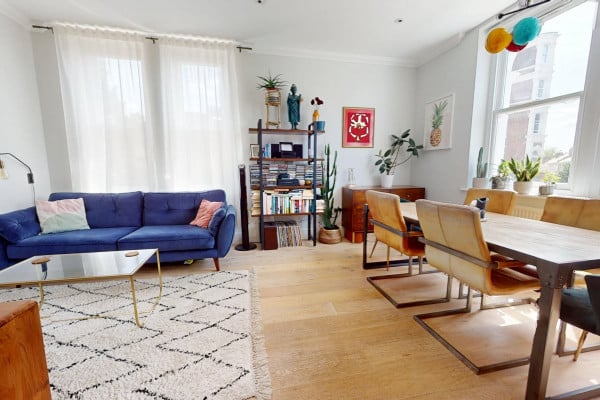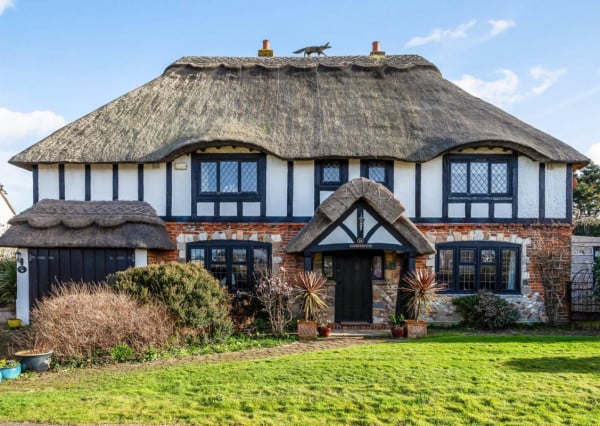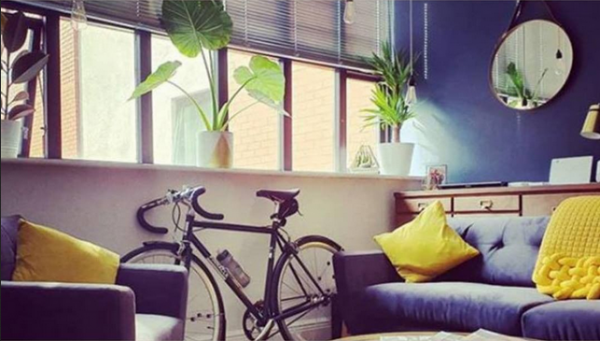How to save money when buying a home

So, you're thinking of buying a new home? That's great news! Is it a trendy three-bed terrace in a cul-de-sac? Or do you fancy a penthouse apartment with city views? Whatever the property type, we're sure you're excited about your soon-to-be new home.
But wait. It's not all plain sailing? You're getting a bit tired with all the costs involved with buying a home, you say? We totes get that. After all, it's enough having to pay for bricks and mortar, let alone all of the other costs associated with getting the keys to your new home.
Conveyancing, legal costs, high stamp duty if it's your second home, mortgage fees – the list is endless. Which is why most homebuyers look to save a pretty penny wherever they can when buying a home. So, if you're wondering how you can save some money when in your buying journey, stick with us, and we'll give you some tip-top tips.
Plan early and get your credit score on point
Before you start viewing a property and making offers, be sure to check your credit score. Taking an early look at your credit file means that you can identify ways to bump up the numbers. The higher your credit score, the more chance you have of getting a decent mortgage.
Use free mortgage calculators
If you're still in the early stages of your house-buying experience, it's always good to use a mortgage calculator, which will give you an idea of how much you can borrow. A trusty will throw up plenty of options.
Once you have an idea of how much you can borrow, to find the best offers on the market.
Or why not go one better and , who can give you first-hand advice and discuss your options?
Think about the overall cost of buying a home
Calculating the costs associated with buying a home beforehand can be tricky. But it can also give you an indication of the overall total cost. Think about potential fees involved and try your best to budget accordingly. Aspects like mortgage arrangement fees, valuation fees, legal fees, stamp duty, removal costs, home repairs, surveys, furnishing etc could all play their part in your total spend.
While knowing the costs won't technically save you any money, it will stop any nasty surprises from springing up – and if you try and slightly over budget, you could be left pleasantly surprised by the time you get the keys.
Make the most of the Help to Buy ISA scheme
First-time buyer can explore taking advantage of the government scheme that came into place in 2017.
lets you save up to £4,000 a year either as a lump sum or by putting money aside when you can. The state then adds a 25% bonus on top if you use it towards a first home, with the government contributing a maximum of £32,000.
Shop around before deciding on where to invest your money
Too often, homebuyers (especially first-time-buyers) go for the first mortgage offer, hire the first solicitors they speak to and so on, all because they are so eager to get the ball rolling. Buying a new home isn't a race, however. With the average transaction taking anywhere between three to six months, you have a bit of time on your side when it comes to making big decisions.
Yes, the housing market is competitive, and good-quality properties can be snapped up quickly. But once an offer is accepted, you can take a bit more time looking for good deals for legal fees etc. The result could see you save a few hundred pounds.
Make sure you use personal finance apps and that it's the right season
Improved technology means more options for how to save money.
Whether you're in the deposit-saving process, or looking for the best deals along your buying journey, there are out there to help you save a quick buck here and there.
And as far as the season is concerned, erm…, to buy a home?
Before getting the keys to your first home, monitor the market and the lease
The housing market isn't too dissimilar to the stock market, in that it's susceptible to peaks and dips (just not as frequently). Buying a home is a personal decision that shouldn't be dictated by current trends. But having knowledge of house price averages will help you make more informed decisions.
Furthermore, owning a leasehold flat essentially means that you're renting it for the period of the lease. When buying, it's essential to check the length of that lease. Short leasehold properties go on the market for lower prices but renewing the lease can be costly. Look for an apartment with more than 80 years left on the lease. The result will see you save in the long term and avoid having to worry about an expiring lease.
Understand service charge costs
imgFlats also come with services charges, which is the cost for maintaining the communal areas of the building. Service charges can cost anywhere between £80 and £150 pounds a month, though on some properties they are even more costly. They are calculated by the size of the building and split evenly with the number of apartments.
An apartment building with a high volume of flats should equate to a lower service charge. Also take note of the amenities available: somewhere with a concierge, gym, swimming pool etc is likely to be more costly than a development with a communal garden. Always find out the service charges before making an offer.
Head to an auction
Ok, so this one is a bit left field, but if you haven't found a property yet, buying at an auction could save you thousands. Auctioned properties are often priced lower than market value. As long as there isn't a bidding war, they offer an opportunity to get a house at a cut-price deal.

When Property Offers Fall Through: A Guide for Sellers and Buyers
25.06.2025One of the biggest worries for anyone buying or selling a home is the possibility of the deal falling through. And it's a valid concern - nearly 29% of property sales in the UK didn't make it to completion in 2024. Whether due to cold feet, poor survey results, or mortgage issues, it's more common than most people think.

The Best Building Survey if You're Buying an Older Property
05.06.2025Buying a property is a big decision by anyone's standards, which is why it's important to view one with a practical hat on rather than being ruled by your heart.

Hidden Costs Revealed: What Your Survey Might Uncover
21.07.2024Buying a home is a major financial commitment and for most of us, it's the biggest purchase we'll ever make. Whether this is your first time stepping on the property ladder, you're an existing homeowner or you're investing in a property for commercial purposes, checking things out thoroughly is always essential. One of the most effective tools to assist with this is a property survey but, what might a survey uncover and how will that affect your property purchase?
.png)
How Long is a Property Chain?
22.04.2024In case you don't know by now, a property chain is when multiple transactions are linked together and need to be completed at the same time for each sale to be successful. However, many buyers and sellers often wonder about the length of a property chain.
.png)
How to Get a Bigger Mortgage
22.04.2024Unfortunately, bagging your dream home can be curtailed by a number of things. Being unable to get a big enough mortgage can be an issue that arises.
.png)
The Pros of Buying a House Chain Free
22.04.2024Have you ever noticed the words "chain free" when searching for a new home? If you have, it means you were looking at a property that didn't require an onward purchase to complete, which reduces the chances of the chain breaking down.









